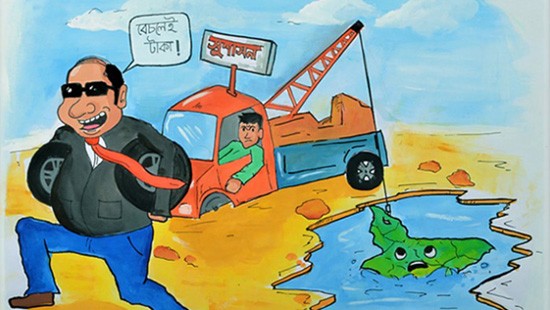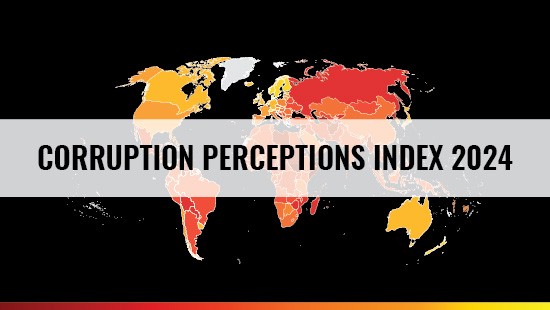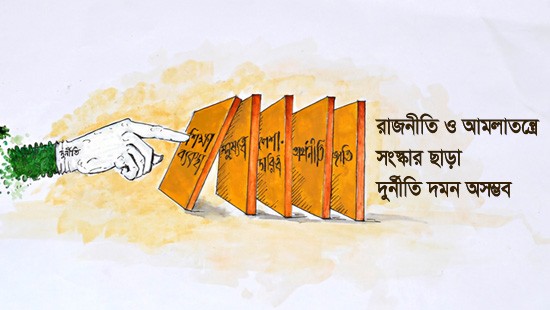Published: 24 April 2014
One year ago today, three thousand garment workers started a typical work day at Rana Plaza in Bangladesh.
Like many of the country’s 4m garment workers – over 80 per cent of whom are young women – they earned just over one dollar a day for up to 19 hours of work; went without water or toilets; and crucially were not protected by basic workplace safety standards. They walked up one staircase: the only way in and out of the building.
Just as work began, the building began to collapse. It had been declared unsafe, but that never stopped workers coming to their jobs every day. Of the 3,000 plus workers at Rana Plaza on April 24, 2013, 1,129 were killed.
A year ago the story was about a building collapse. Now we know it was really a tragedy stemming from corruption. We already knew corruption increases injustice and poverty; we knew it undermines development and democratic accountability. Rana Plaza has shown corruption also kills innocent people.
The building was constructed on illegally occupied land in collusion with the politically powerful and run in defiance of regulations and buildings codes with the help of corrupt officials.
Today Rana Plaza is still a pile of rubble strewn with scraps of fabric and twisted metal, still smelling of rotten corpses. The families of the victims still come to mourn (see photo). Many are still waiting for compensation, but what they want above all, like the rest of the country’s factory workers, is change. The lack of change since the fire is striking.
To get a factory up and running, factory owners can pay as much as $25,000 in bribes for 14 different categories of permit from 17 public agencies across 11 ministries. When there are greater risks, such as not having an emergency exit, the amount of the bribe often gets bigger, but the factory stays open.
There are problems of capacity too. In 2013, Dhaka had only 22 safety inspectors for 17,000 factories and workshops – one for every 772 factories. The inspectorate has no local office near Rana Plaza.
The resulting system protects neither the rights, the welfare nor the safety of garment workers and reform has been compromised by a craving for quick profits by factory owners and exporters who make up at least 10% of parliament.
For the sector to survive, the Bangladesh government must replace the archaic factory oversight system – and its myriad offices for boiler supervision, land use and fire safety – with a one-stop shop garment ministry, reducing opportunities for bribery.
The new garment ministry would have a strong department for inspections with more staff and resources. A parliamentary committee already recommended hiring 2,000 extra staff for factory oversight in 2010.
Second, authorities must enforce tough penalties for negligent factory owners. If the charges against Rana Plaza’s owners stick, they would be the first owners brought to justice. Failure to do so will only promote further impunity leaving workers’ rights and safety perilously undermined.
Global clothing brands should pledge to work with the government and suppliers to genuinely deliver higher safety standards.
These companies have taken a first step by keeping their business in the country, offering compensation and sponsoring inspections and other safety measures. If the two international bodies set up since Rana Plaza – Accord and Alliance – work together they can make rights and safety standards as much a component of ethical business as garment design and quality.
But these will not solve the bigger problem: a global garment supply chain bedeviled by endemic corruption. Overcoming temptation to collude with high-risk suppliers for quick profit, their business deals must ensure workers’ rights and welfare. As long as they buy from unsafe factories, workers’ lives will remain at risk.
In the end, this is about more than safety. This is about building a system free from the corruption that puts workers’ lives at risk. This is about making workers’ rights a part of sustainable, profitable, ethical business.
Iftekharuzzaman. Executive Director, Transparency International Bangladesh (TIB).
Published on 24 April, 2014 in Financial Times Blog of UK. Link







